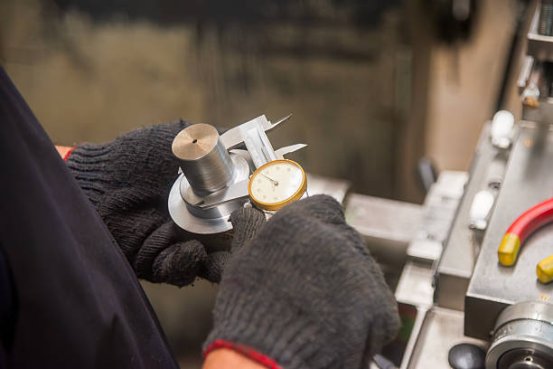Metal Integrity: Innovations in Metallurgical Testing Systems
Metallurgical testing is central to verifying the safety, quality, and long-term reliability of metals that support industries ranging from aerospace and automotive to large-scale construction projects.
Metallurgical testing is central to verifying the safety, quality, and long-term reliability of metals that support industries ranging from aerospace and automotive to large-scale construction projects.

The Importance of Metallurgical Testing
1. Ensuring Material Reliability
The foundation of metallurgical testing lies in its ability to assess the chemical composition and physical behavior of metals. By measuring characteristics such as strength, ductility, hardness, and resistance to wear, engineers can confirm that materials conform to strict industrial standards. This step is essential to minimize risks of structural failure, ensure operational safety, and enhance confidence in materials used in high-stakes environments.
2. Applications Across Sectors
The influence of metallurgical testing stretches across almost every industry that relies on metal products. Aircraft manufacturing, automotive production, and the construction of infrastructure such as bridges and rail systems all depend on accurate testing to make informed decisions. These tests help engineers predict how metals will perform over time, confirm regulatory compliance, and improve material selection processes, ensuring projects remain durable, efficient, and safe.
Core Components of Testing Systems
Modern metallurgical testing systems integrate advanced instruments and precise methodologies. Laboratories typically include spectrometers, tensile testing machines, polishing units, hardness testers, and furnaces. By combining these resources, facilities can provide detailed, repeatable, and highly accurate evaluations of materials.
Key Types of Testing and Equipment
1. Spectrometers for Alloys
Spectrometers identify the elemental makeup of alloys with exceptional speed and accuracy, allowing manufacturers to confirm that metal compositions align with required specifications.
2. Metallurgical Material Analysis
Tests such as hardness evaluations, microscopic inspections, and microstructural analysis allow experts to study strength, ductility, and wear resistance. These insights help guide the design of products and ensure they can withstand demanding applications.
3. Polishing Machines for Sample Preparation
Accurate microscopic analysis requires a smooth, defect-free surface. Polishing machines create such surfaces, making it possible to examine the finest structural details and detect potential flaws that might compromise performance.
4. Comprehensive Laboratory Equipment
Labs equipped with microscopes, furnaces, and hardness testers provide a broad range of capabilities, from advanced R&D and certification to problem-solving during manufacturing.
5. Tensile Testing Machines
These machines apply controlled tensile forces to metals, helping determine elasticity, strength, and breaking points. The resulting data is indispensable for engineers designing components that must endure heavy stress or dynamic conditions.
6. Metallurgical Accounting
Tracking the flow and consumption of metals during production improves operational efficiency, minimizes waste, and ensures accurate record-keeping for quality and compliance.
7. Specialized Testing Services
Third-party testing services bring independent expertise to material evaluation, providing unbiased support for quality control, regulatory certification, and product development efforts.
8. Ongoing Quality Assurance
Consistent testing throughout the manufacturing process ensures that metals continue to meet expectations. When deviations occur, corrective actions safeguard both performance and safety.
Role of Metallurgical Labs
1. Local Laboratories
Regional labs are crucial in supporting industries by reducing transportation costs, minimizing turnaround times, and offering vital services like failure analysis and precise material characterization. They are particularly valuable for urgent investigations and routine verification.
2. MTS Testing Solutions
MTS delivers industry-specific metallurgical services to sectors such as aerospace, automotive, and construction. Combining advanced testing technologies with strict compliance requirements, MTS evaluates strength, durability, and resilience under environmental stresses to ensure materials can meet the demands of their intended use.
Equipment Comparison
| Equipment | Function | Features | Use Case |
| Spectrometer | Elemental and alloy analysis | Rapid readings, high accuracy | Alloy verification, quality control |
| Tensile Tester | Strength and elasticity evaluation | Controlled tensile force application | R&D, engineering design, safety testing |
| Polishing Machine | Surface preparation for microscopy | Adjustable finishing for clear samples | Structural analysis, flaw detection |
Emerging Trends
1. AI and Automation
Automation increases efficiency, reduces the risk of human error, and provides consistent results. With AI-driven analytics, metallurgical testing now offers predictive modeling and improved interpretation of complex datasets, allowing for faster and more reliable evaluations.
2. Advanced Non-Destructive Testing (NDT)
Modern NDT techniques such as ultrasonic, eddy current, and radiographic testing provide highly detailed insights without damaging the sample, enabling continuous quality checks while preserving the integrity of valuable materials.
3. Eco-Friendly Testing Approaches
As sustainability becomes a priority, testing methods are evolving to minimize waste, energy use, and harmful by-products. These environmentally responsible approaches deliver the same level of precision and reliability while reducing ecological impact.
FAQ
What is the central goal of metallurgical testing?
Its main purpose is to ensure that metals meet necessary standards of strength, quality, and safety for their intended applications.
How do spectrometers function in testing?
They analyze light spectra emitted or absorbed by samples, allowing for precise determination of chemical elements.
Which industries most heavily rely on metallurgical testing?
Aerospace, automotive, construction, and manufacturing industries all depend on it to guarantee safe, reliable materials.
Can testing be performed directly at worksites?
Certain tests are portable and can be done on-site, but comprehensive evaluations generally require laboratory settings equipped with advanced instruments.
Is professional training available?
Yes. Multiple academic institutions and online platforms provide specialized courses in metallurgical testing and equipment operation.
Conclusion
Metallurgical testing systems serve as the backbone of modern engineering and industrial development, ensuring that metals used in critical applications meet strict requirements for safety, performance, and reliability. With the integration of AI, automation, non-destructive techniques, and sustainable testing practices, the field is evolving rapidly. These advancements are set to deliver greater accuracy, efficiency, and environmental responsibility, solidifying metallurgical testing as an essential component of global innovation and industrial progress.
References
